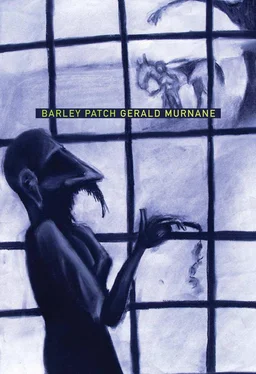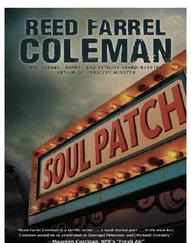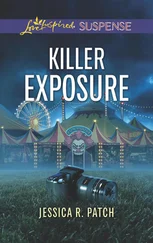Gerald Murnane - Barley Patch
Здесь есть возможность читать онлайн «Gerald Murnane - Barley Patch» весь текст электронной книги совершенно бесплатно (целиком полную версию без сокращений). В некоторых случаях можно слушать аудио, скачать через торрент в формате fb2 и присутствует краткое содержание. Год выпуска: 2011, Издательство: Dalkey Archive Press, Жанр: Современная проза, на английском языке. Описание произведения, (предисловие) а так же отзывы посетителей доступны на портале библиотеки ЛибКат.
- Название:Barley Patch
- Автор:
- Издательство:Dalkey Archive Press
- Жанр:
- Год:2011
- ISBN:нет данных
- Рейтинг книги:5 / 5. Голосов: 1
-
Избранное:Добавить в избранное
- Отзывы:
-
Ваша оценка:
- 100
- 1
- 2
- 3
- 4
- 5
Barley Patch: краткое содержание, описание и аннотация
Предлагаем к чтению аннотацию, описание, краткое содержание или предисловие (зависит от того, что написал сам автор книги «Barley Patch»). Если вы не нашли необходимую информацию о книге — напишите в комментариях, мы постараемся отыскать её.
Barley Patch — читать онлайн бесплатно полную книгу (весь текст) целиком
Ниже представлен текст книги, разбитый по страницам. Система сохранения места последней прочитанной страницы, позволяет с удобством читать онлайн бесплатно книгу «Barley Patch», без необходимости каждый раз заново искать на чём Вы остановились. Поставьте закладку, и сможете в любой момент перейти на страницу, на которой закончили чтение.
Интервал:
Закладка:
I had no doubt that any Catholic child of the age of the altar-climber would have learned to be in awe of sanctuaries and altars and, above all, tabernacles. In the city where I lived when I received the card, any Catholic child found even so much as trespassing in the sanctuary, let alone clambering onto the altar and fiddling with the tabernacle — any such child would have been thrashed by parents and teachers. If the child had already made his or her first confession, he or she would have been advised to confess at the first opportunity the mortal sin of sacrilege. The child’s escapade might later have been made public, but only as an example of the sort of gross offence that no right-minded child would even contemplate. It would have been unthinkable for someone to record the offence for posterity, as it were, by painting on the front of a holy-card the scene of the crime, so to call it. And yet, the fact remained: there I was, a resident of the city mentioned earlier in this paragraph and also the owner of a holy-card that seemed to advertise the unthinkable. Admittedly, the little altar-sitter in the picture seemed more like a cherub in a church-mural than the sort of child that I mixed with. But whenever I stared at the portrait of the curly-haired, pink-cheeked boy, I felt the beginnings of a peculiar hopefulness. Somewhere, in some layer of the world far beyond my own drab layer, it might have been possible sometimes to follow one’s own desires without incurring punishment. The curly-haired child might have explained away his escapade by telling the adults that he felt sorry for Jesus, locked up all day on the altar with nobody to visit him; or perhaps the child’s excuse was that he had something to tell Jesus: something so private that it had to be whispered to Jesus through the keyhole of his house. And the lisping trickster might have got away unscathed. The adults judging his case might have exchanged smiles of mock-exasperation before deciding that he had meant no harm. I inferred all this from the mere facts that the holy-card had been designed and printed by adults and had been sent to me by an adult — and a nun, moreover.
My pondering over the holy-card led me to no new course of action, although it would surely have made my daydreams somewhat bolder. I may well have daydreamed sometimes about an afternoon when the sender of the card, won over by my innocent-seeming ways and by the long words that I had used on her, showed me up the stairs of her two-storey building and allowed me to look out from the upper verandah at the view, which I hoped would be of far-reaching grasslands in northern Victoria, where I had never been. I may even have daydreamed that the sender of the card, again impressed by my feigned innocence and precocious words, persuaded some priest-friend of hers to hold open in my sight the door of a tabernacle and even to part the inner hangings with his hand in such a way that I would be able always afterwards to see the exact arrangement of folds of cloth and dark interstices in a tabernacle in my mind.
The reader should not suppose that I was interested in tabernacles or in the upper storeys of convents or of presbyteries because I was attracted to the invisible personages in whose cause such places had been built. I was in awe of Almighty God; of his son Our Lord, Jesus Christ; of Mary, the Mother of Our Lord; of all the angels and saints. Rather, I was in awe of the images of those personages that had lodged in my mind as a result of my having looked from an early age at certain statues, coloured windows, and holy-cards. I was anxious not to offend the personages by any misdeeds of mine. Several times daily, I uttered aloud or in my mind prayers addressed to one or another of the personages. Sometimes I felt that one or another of the personages was scrutinising me from behind the cover of his or her invisibility. I did not doubt what I had been taught from early childhood: that my chief task in life was to become on close terms with as many as possible of the personages. And yet, I was not at all attracted to any of the personages; and although I would never have dared admit it to anyone, I felt as though none of the personages had any special fondness for me.
I was not devoted to the personages, but I was interested in the places where they were venerated or where they were depicted as dwelling. I peered not only at upper-storey windows but into the dim, furthest reaches of grottoes in churchyards. I tried to imagine the garden behind the high wall in front of the Marist Brothers’ monastery. I seem to have envied priests and members of religious orders not only the views to be had from their imposing buildings but also whatever they saw when there was nothing of note to be seen around them: what they saw when they paced up and down the same path in the same walled garden, and even, perhaps, what they saw when they closed their eyes or covered their faces after they had received Holy Communion in some secluded chapel at first light.
My interest in these matters found its simplest outlet of a Sunday morning when I knelt beside one or another of my parents in our not-unpretentious parish church. During much of the service I would fix my attention on one after another of the stained-glass windows. The foreground of each window-picture was the preserve of one or another of the personages mentioned above. The background, however, seemed available for me to fill with landscapes or with glimpses of distant townships. And yet, whenever I gave up trying to imagine scenery fit to be discerned in some or another background of transparent pale-green or translucent orange and asked myself, in a mood of literal-mindedness, what in fact was just out of sight behind those converging pastel-toned plains and skies, I had to acknowledge the obvious. However many other-worldly personages might have loomed in the view of the worshippers inside the church, they existed against an ultimate background hardly different from what lay around me whenever I walked to school or to my local shops. The farthest imaginable background might have been a suburb of a provincial city overlaid by a pale wash of colour.
But I have not yet finished my report of the holy-card showing the curly-haired child getting away, so it seemed, with sacrilege. What I am about to report would have happened gradually and subtly and would have made scant difference to my everyday life; would have been hardly apparent to me except at odd, illuminating moments. What I am about to report is not at all an account of my drawing closer in my mind to the nun who had sent me the holy-card mentioned often above. If anything, I preferred not even to recall the pink-faced, brown-robed figure who had made much of me in the parlour of the convent on account of my bearing, according to her, an uncanny resemblance to my father.
In order to complete my report of the effects of a certain holy-card on the child that I seem to have been, I have to introduce into this work of fiction a personage whose title will be from here onwards the Patroness . I have used just now the word personage for want of a more accurate word. The reader must not suppose that my patroness occupied the same level of existence that was occupied by the personages mentioned in detail in the fourth-most recent paragraph and mentioned briefly in two subsequent paragraphs. This is necessarily a complicated piece of fiction, and if the English language had provided them, I would have used a variety of terms so as to distinguish such as the Patroness mentioned just above and what might be called the chief characters of the religion of my childhood, not to mention certain beings that I reported in earlier pages as having come into existence while I read works of fiction.
The Patroness was the least predictable of any of the beings that I choose to call personages. On rare occasions, she seemed closer to me and more aware of me than any other denizen of my mind. Mostly, though, she led a wavering existence, sometimes seeming as though anxious to break through whatever barriers lay between us but at other times seeming as though the very purpose of her existence was to remain aloof from me and so to provide me with a task worthy of a lifetime of effort: the simple but baffling task of gaining admission to her presence.
Читать дальшеИнтервал:
Закладка:
Похожие книги на «Barley Patch»
Представляем Вашему вниманию похожие книги на «Barley Patch» списком для выбора. Мы отобрали схожую по названию и смыслу литературу в надежде предоставить читателям больше вариантов отыскать новые, интересные, ещё непрочитанные произведения.
Обсуждение, отзывы о книге «Barley Patch» и просто собственные мнения читателей. Оставьте ваши комментарии, напишите, что Вы думаете о произведении, его смысле или главных героях. Укажите что конкретно понравилось, а что нет, и почему Вы так считаете.












